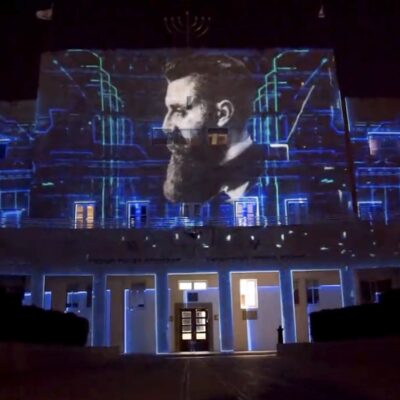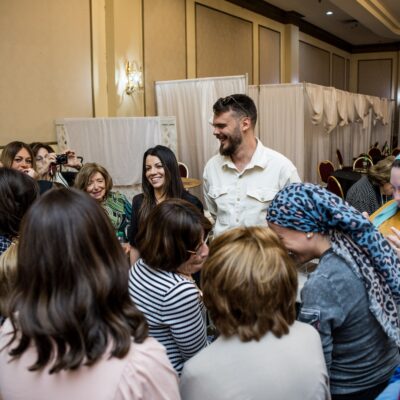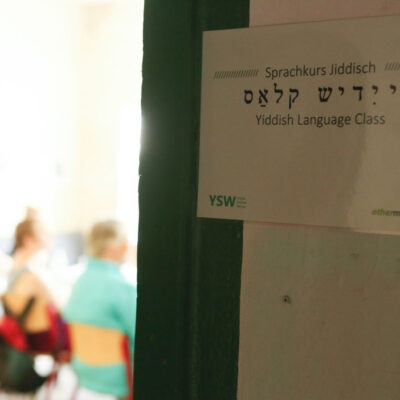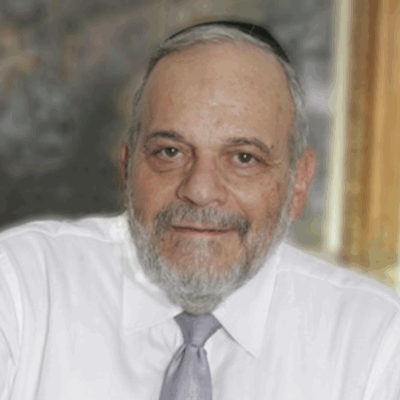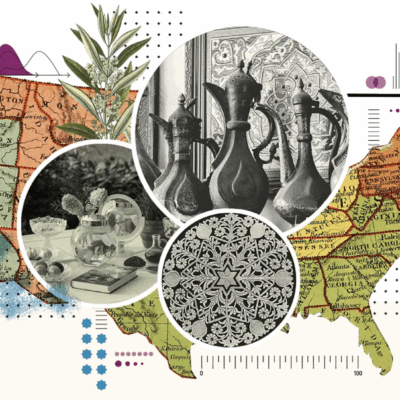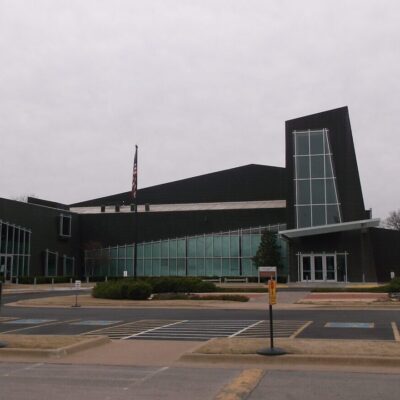Your Daily Phil: Jews rejoice as four hostages rescued from Gaza
Good Monday morning.
In today’s edition of Your Daily Phil, we report on Project Kesher Israel’s efforts to help same-sex couples from Russia and Ukraine make aliyah, on the plans to renovate the historic Kesher Israel synagogue in Washington, D.C., and on a new survey of U.S. Jews by the American Jewish Committee. In the latest installment of eJewishPhilanthropy’s exclusive opinion column “The 501(c) Suite,” Rachel Garbow Monroe writes about investing in research and sharing data on Jewish poverty to better understand and address its far-reaching implications. Also in this newsletter: Naomi Strongin, Barbra Streisand and Jonathan Jaffe Bernhard. We’ll start with how Jews around the world learned of the rescue operation that saved four Israeli hostages on Saturday.
Jews around the world rejoiced this weekend as news emerged that four Israeli hostages — Noa Argamani, Almog Meir, Andrei Kozlov and Shlomi Ziv — had been rescued by Israeli forces from captivity in Gaza, with word of the operation spreading even to many Shabbat-observant communities in the United States, who would normally have had to wait until Saturday night for the news, reports eJewishPhilanthropy’s Judah Ari Gross.
Members of Kibbutz Be’eri — one of the hardest hit communities in the Oct. 7 terror attacks — were in Toronto this weekend for the city’s “Walk with Israel” and were hosted by a local Orthodox synagogue. “During the service, the news came about the rescue operation. It was very moving!” according to Amihai Bannett, the CEO of Herzog Global, who was visiting the same synagogue from Israel.
Yonatan Amrani, the cantor for the Jewish community of Heidelberg, Germany, said that the news came in during a communal lunch.
“The (Orthodox) rabbi said in the middle of the meal that he’d just gotten the message that four hostages had been released — [there was] applause, ‘Am Yisrael Chai’ and ‘le’chayim!‘” Amrani said. “It was a dramatic moment.”
At Bnai Yeshurun in Teaneck, N.J., the rabbi was also the bearer of the good news. “During shacharit, there were rumblings in the crowd… the rabbi went up to the podium and announced the release of the hostages, including Noa Argamani. He burst out crying and asked everyone to say with him ‘Shir La’ma’alot’ for the release of the other captives,” said Ariel Erani, partnership network director of the Jewish Federation of Greater Metrowest, N.J.
Jewish Federations of North America hailed the news of the hostages’ rescue, saying in a statement that it “celebrate[s] with the rest of Israel and the Jewish people.”
“To see their smiling faces and those of their families is nothing short of a miracle,” JFNA wrote in a statement. “We salute the brave IDF soldiers who risk their own lives every day, and our hearts mourn with the family of Chief Inspector Arnon Zamora, who gave his life during the rescue mission, now aptly named ‘Operation Arnon.’ While we rejoice today, we must remember that 120 hostages remain in Hamas’s hands. The fight must continue to bring them home by any means.”
British Chief Rabbi Ephraim Mirvis also acknowledged the bittersweet aspect of the rescue, regarding both the death of Zamore in the raid and the deaths of Palestinian civilians.
“We are overjoyed that our prayers have been answered and that [the four hostages] have been safely returned to their families’ embrace. At the same time, we mourn the loss of Commander Arnon Zamora who was fatally wounded as part of the operation. Let the world be in no doubt that it is Hamas which bears complete moral responsibility for the loss of all innocent life during the rescue operation,” Mirvis said in a statement.
Read more about the hostage rescue operation here, in eJewishPhilanthropy’s sister publication Jewish Insider.
PRIDE MONTH
Using virtual ‘Utah marriages,’ Project Kesher helps Russian, Ukrainian same-sex couples make aliyah

As tens of thousands of Ukrainians and Russians began arriving in Israel after Moscow launched its invasion of Ukraine in February 2022, the Israel women’s organization Project Kesher Israel, which works primarily with Russian speakers, began to prepare for the influx through various avenues of humanitarian aid and emotional support, said Rabbi Olya Weinstein, CEO of Project Kesher Israel. The organization quickly realized that there was a vulnerable subgroup among the refugees from Russia and Ukraine: same-sex couples, reports Judith Sudilovsky for eJewishPhilanthropy.
Getting recognized: Israel’s Law of Return offers citizenship to nearly anyone with at least one Jewish grandparent, as well as their immediate family. Though Israel does not have same-sex civil marriage, it does recognize same-sex marriages performed abroad, so the legal spouse of a person eligible for Israeli citizenship can immigrate with them and receive Israeli citizenship as well. But Russia and Ukraine also do not recognize same-sex marriages, meaning that for the Israeli government, an LGBTQ couple was not, legally speaking, a couple at all. “They didn’t have this right stamp on their documents [indicating] that they were legally married…[so] they were treated as if they each came individually to Israel,” Weinstein told eJP.
Utah to the rescue: The solution for many same-sex couples in Russia and Ukraine was so-called Utah marriages. In January 2020, as part of an initiative by a relatively low-level official, the state of Utah began accepting virtual wedding ceremonies, provided at least one person involved was physically based in the state (this was generally the officiant, while the couple could be located anywhere in the world). Israel’s Interior Ministry tried to reject these Utah weddings, but that decision was successfully challenged in court several times, on behalf of both heterosexual and LGBTQ couples, and the government was forced by the Supreme Court to recognize them.
Not over yet: Nicole Maor, director of the Legal Aid Center for Olim (LACO) of the Israeli Reform Movement, spearheaded one of these legal challenges on behalf of a same-sex Russian couple through Project Kesher Israel. “Since we won that judgment, other cases have succeeded,” Maor told eJP. “But there is a feeling that [the Interior Ministry] is still hesitant and are looking for any possible loopholes they can find. They are demanding more proof of the seriousness of the relationship, proof they want to live in Israel.”
CONSTRUCTION PROJECT
Georgetown’s historic Kesher Israel synagogue set to undergo major renovation, expansion

Kesher Israel Congregation, a Modern Orthodox synagogue in Washington, D.C., has a storied, even mythic, history among Jews of the nation’s capital. What it doesn’t have is anything approaching a modern building. That’s about to change, reports Jewish Insider’s Gabby Deutch.
Stuck in the ’30s: Kesher Rabbi Hyim Shafner is now overseeing a major renovation of the synagogue’s building, which has remained largely untouched since it was built in 1931. The synagogue has no lobby, leading guests to sometimes wonder if they are at the right entrance. It is inaccessible to people with disabilities; all spaces are reachable only by climbing up or down stairs. Its social hall can fit no more than 50 people for a Shabbat dinner, despite the synagogue’s membership of more than 300 people. Critically, the building lacks the security protections that are common in many other synagogues.
Who’s left out: Aaron Tessler, a board member at Kesher, rattled off examples of people who aren’t well-served by the building’s current layout: Families with young children who would have to walk outside through the elements to take their kids to the children’s programming; people who can’t attend Shabbat meals because there isn’t space; a boy on his bar mitzvah who wants to call his grandfather to the Torah for an aliyah, but his grandfather can’t do it because he can’t walk up the stairs.
Not just bigger but better: Once construction starts, likely next year, it is slated to take 12 to 14 months, during which time the synagogue will relocate to a temporary space. The proposed new facility will increase the synagogue’s size by more than 50%, from 8,100 square feet to 12,700 square feet. The project is less about expansion than modernization — meeting modern fire codes, serving congregants with children and those with disabilities and improving security. In December, a man appeared outside yelling “Gas the Jews” and spraying people who left the building with an unidentified substance. “It’s very top of mind, especially with Oct. 7, that we are immediately facing the street,” said Tessler. “People are hyper aware of our vulnerabilities.”
Read the full report here and sign up for Jewish Insider’s Daily Kickoff here.
POLL POSITION
AJC survey finds most Jews concerned about post-Oct.7 antisemitism and support Israel

A survey of the U.S. Jewish community by the American Jewish Committee found that a significant majority of American Jews harbor deep concerns about antisemitism in the United States and remain strongly supportive of Israel. It also finds that President Joe Biden is maintaining most of his support within the Jewish community in anticipation of a 2024 presidential rematch against former President Donald Trump, reports Jewish Insider’s Marc Rod.
Growing problems: The survey of 1,001 Jewish adults was conducted online by research company SSRS from March 12 to April 6, with a 3.9% margin of error. The poll found that 87% of U.S. Jews said antisemitism has increased since the Oct. 7 attack on Israel, with 55% saying it has increased “a lot” since the attack. On Israel, 85% of Jews said it’s important for the U.S. to continue to support Israel, with 60% rating it “very important.” Seventy-eight percent of Jews said they are paying more attention to news about Israel since Oct. 7.
Looking for the exit: The survey found that the Oct. 7 Hamas terrorist attack and the ensuing war have had an influence on many Jews’ behavior. Fifty-three percent of respondents said that the war has impacted personal or work relationships or that they have avoided talking about the war, 42% percent said they feel unsafe wearing Jewish symbols in public since Oct. 7; and 45% feel unsafe sharing their views about Israel on social media. Seven percent of American Jews reported thinking about leaving the U.S. since Oct. 7 due to antisemitism, with a total of 9% saying they had considered leaving the country due to antisemitism since Oct. 7 or in the five years prior.
No change: Looking to American politics, the survey suggested that some predictions that Trump would do significantly better among Jewish voters in 2024, driven by concerns over Democrats’ views on Israel, are overstated. Sixty-one percent of respondents said they plan to vote for President Joe Biden, roughly in line with the 64% who reported, in the same poll, having voted for Biden in 2020. (The Associated Press VoteCast voter analysis found that 68% of Jewish voters backed Biden in the 2020 election.)
THE 501(C) SUITE
Showing care and concern for our entire community: A call to address Jewish poverty

“‘May the dignity of your fellow be as dear to you as your own.’ For me, this verse from Pirkei Avot has always been the essence of the work of many funders committed to serving the Jewish community,” writes Rachel Garbow Monroe, president and CEO of The Harry and Jeanette Weinberg Foundation, in the latest installment of eJewishPhilanthropy’s opinion column “The 501(c) Suite.”
Mind the gap: “While many funders support expanding access to Jewish life and fostering a sense of belonging within our community, they do not always consider the unique needs of low-income Jews who share the same desire to engage and connect. For example, 46% of financially vulnerable Jews say they feel connected with the Jewish community, compared to 58% of the overall Jewish population, according to a survey by JFNA and The Diane and Guilford Glazer Foundation. And since Oct. 7, over one-fifth (21%) of Jews who are financially vulnerable have experienced increased feelings of loneliness or distance from their community, compared to 13% of the overall Jewish population. This kind of data helps us pay attention to the challenges facing all of the Jewish community.”
Data-to-change pipeline: “In partnership with the Jewish Funders Network, the Weinberg Foundation launched what is now called Together Ending Need (TEN) — formerly the National Affinity Group on Jewish Poverty. This collaborative effort aims to standardize data collected through community studies about low-income Jews; change the narrative on Jewish poverty in the United States; and convene funders, institutions and direct service agencies to address this challenge. To further strengthen our knowledge base, Weinberg and others have also made intentional, ongoing investments in data and research… We have come a long way in five years, but we all can and should do more.”
Worthy Reads
An American Obligation: In The Washington Post, Ruth Marcus expresses concern that, outside of the Jewish community, the American hostages in Gaza are out of sight and out of mind in the United States. “The hostages being held by Hamas in Gaza — the ones who we hope are still alive, and the ones who have been murdered but whose bodies remain — are not just an Israeli tragedy. They are an American tragedy, for the simple but often forgotten reason that eight of them, five living and three dead, are Americans. We cannot forget them — not any more than we can forget Evan Gershkovich, imprisoned in Vladimir Putin’s Russia, or Austin Tice, held for more than a decade in Syria. They are American citizens, to whom we owe a fundamental duty of protection. And yet, I am afraid, we do forget… I have met over the years with other families facing terrible circumstances — mothers whose children were gunned down at Sandy Hook Elementary; the wife of an American contractor jailed in Cuba — and I do not mean to rank tragedies. But there was something particularly haunting in the stricken faces of the hostage families: the not knowing, day after day, whether their loved ones are still alive, or how long this hellish captivity will last… ‘If the United States allows the American hostages to rot in Gaza, my fear [is] — and everybody’s fear should be — that this proves to be a successful strategy for terrorism,’ said Ronen Neutra [father of hostage Omer Neutra].” [WashPost]
Eight Months In: In the Jewish Journal, Naomi Strongin — vice president of the Jewish Community Foundation of Los Angeles and director of its Center for Designed Philanthropy — offers advice for donors contemplating how best to support Israel as it enters its eighth month of war. “Oct. 7 launched an unprecedented period of philanthropy and grant-making, unlike anything I have seen in my 15-plus years in the field. The outpouring of support from the Jewish community has been truly remarkable and much longer lasting than other emergencies. Increasingly, donors have expressed interest in identifying the most pressing and timely areas of need, with a particular focus on addressing the national rise in antisemitism. Our Israel-based philanthropy consultant, Offi Zisser, recently offered a sobering account of the major challenges Israel is facing today, more than seven months into the conflict… Government cutbacks have compounded challenges for Israel’s social infrastructure because many nonprofits rely on public support for 50-80% of their operating budgets. Welfare and educational programs are being reduced or cancelled… With all of this in mind, we recommend providing general operating support to trusted nonprofits so that they have the resources to survive and adapt in times of crisis.” [JewishJournal]
A Cautionary Tale: In The Chronicle of Philanthropy, Maria Di Mento examines how a major gift to a Florida college went quickly from cause for celebration to an institutional headache. “On May 4, when Florida A&M University announced it received a donation of stock valued at roughly $240 million from 30-year-old hemp entrepreneur Gregory Gerami, the news elicited excitement throughout the philanthropy world. FAMU is among the country’s historically Black colleges and universities, institutions that have been chronically underfunded since their founding and almost never get nine-figure gifts. Celebration turned to dismay within days, however, when crucial aspects of the donation came under fire. FAMU alumni, trustees, and philanthropy-watchers around the country raised questions about the actual value of the stock, as well as uncertainties about what exactly was being transferred. Other concerns included limited vetting of the donor by the university’s president, Larry Robinson, and its then-head of advancement, Shawnta Friday Stroud… What lessons can nonprofit leaders and major gift fundraisers draw from this debacle? The sheer size of the FAMU controversy puts it in a rare category. But in the past 15 years, abrupt changes in donors’ finances or priorities have led to the unwinding of other big gifts. The unpredictable nature of these relationships underscores the importance of establishing strong risk-management systems.” [ChronicleofPhilanthropy]
Around the Web
An estimated 50,000 people took part in Toronto’s “Walk with Israel” yesterday, the largest number ever to take part in the annual event. The UJA-Federation of Greater Toronto raised approximately CAD 1.2 million ($870,000) for Israeli reconstruction efforts at the event…
Barbra Streisand was awarded the Genesis Prize last week, recognizing “her lifelong pursuit of social justice and commitment to being a ‘force for good’”…
Rep. Ritchie Torres (D-NY), one of the most vocally pro-Israel Democrats in Congress, denounced an influence campaign that the Israeli government allegedly directed at him and other Black Democratic lawmakers as “embarrassing” and “racist”…
Writing in The New York Times, Donzaleigh Abernathy and Avi Dresner consider what their fathers, who marched with Martin Luther King, Jr., would think about the current state of Black-Jewish ties…
Julie Boden Adams was hired as the next executive director of the Ithaca College Hillel…
In an opinion piece for The Times of Israel, Jonathan Jaffe Bernhard considers the moral complexity of the tradition of eating dairy on Shavuot in light of the often difficult realities of the modern milk industry…
The Tzofim Friendship Caravan is coming to the United States for some 160 “top secret” shows throughout the country; due to security concerns, the times and locations of their performances are not being publicized in advance…
The NAACP briefly took down its statement calling for the U.S. to halt arms shipments to Israel before reinstating the page with slight modifications…
The teachers from the JCC of Greater Columbus, Ohio, announced that they planned to unionize…
Environmentalist and artist Debby Lee Cohen, whose efforts focused on eliminating plastic trays in school lunchrooms, died in April at 64…
Holocaust survivor Sigmund Rolat, who used the wealth he amassed after immigrating to the U.S. to fund projects in his native Poland, including a Jewish museum on the site of the Warsaw Ghetto, died last month at 93…
Pic of the Day

Israel’s President Isaac Herzog (front row, third from right) presented the awards for the Jerusalem Unity Prize 2024 at a ceremony at the President’s Residence in Jerusalem on Sunday. Due to the ongoing war, the theme of this year’s ceremony was “Caring For One Another” and the prizes were distributed in five categories: Strengthening the South, Strengthening the North, Strengthening the Home Front, Reservists, and the Diaspora.
The Jerusalem Prize for the Unity of Israel was initiated by the families of Israeli teenagers Eyal Yifrach, Gil-Ad Shaer and Naftali Fraenkel, after the three boys were kidnapped and murdered by Hamas terrorists in the summer of 2014.
Birthdays

CEO of the Jewish Community Relations Council of San Francisco, Tyler Gregory…
Author of award-winning books about her experiences before, during and after the Holocaust, Aranka Davidowitz Siegal… Emmy Award-winning TV journalist and the author of 14 books, Jeff Greenfield… Physical therapist at the University of Pennsylvania Health System, Andrea Sachs… Cathy Farbstein Miller… Senior director of communications for CoGenerate, Stefanie Weiss… Former attorney general and then governor of New York, Eliot Spitzer… Director of business development at Evergreen Benefits Group, Avi H. Goldfeder… Blogger and columnist for the Chicago Sun-Times, Neil Steinberg… Film, television and stage actress, Gina Gershon… Actress and the older sister of comedian Sarah Silverman, Laura Silverman… Israeli film and TV actress, Avital Abergel… Veteran of nine NFL seasons as an offensive tackle, he is now the athletic director of Mira Costa High School in Manhattan Beach, Calif., Mike Rosenthal… Director of strategic partnerships at the Birthright Israel Foundation and director of community education at NYC’s Congregation Kehilath Jeshurun, Rabbi Daniel Kraus… Professor at the Johns Hopkins University’s School of Advanced International Studies in Washington, Yascha Mounk… Economic commentator on Israeli television, Matan Hodorov… Publisher of The New York Sun, Dovid Efune… Singer, composer and entertainer in the contemporary Jewish religious music industry, Simcha Leiner… CEO of NYC-based Encounter Programs, Yona Shem-Tov… Belgian singer and songwriter, known as “Blanche,” Ellie Blanche Delvaux… S.E. Taylor…



